Rita F. Lin serves as the first Chinese American woman judge in the 175-year history of the U.S. District Court in Northern California

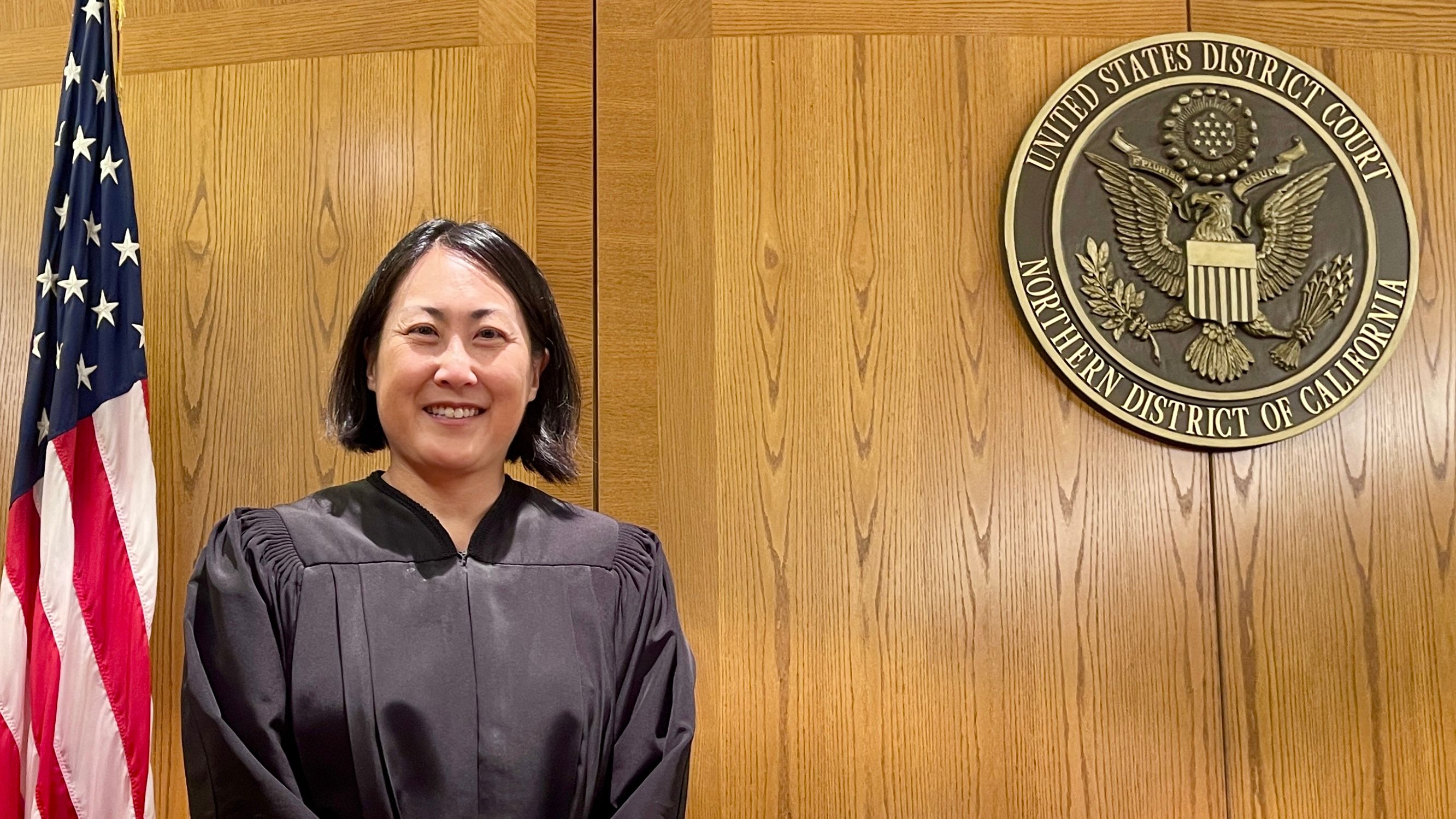
SAN FRANCISCO — Rita F. Lin has always believed in the U.S. legal system for justice. She has had vast experience in both criminal and civil practice on federal and state levels. But she didn't expect herself one day to become the first Chinese American woman judge in the 175-year history of the U.S. District Court in Northern California.
Lin, 46, had gone through a number of congressional proceedings for over a year until she was ultimately confirmed her judgeship by the U.S. Senate in 52-45 votes on September 19, 2023 and started to serve on the U.S. District Court in Northern California, which is headquartered in San Francisco, beginning in 2024.
The U.S. District Court for the Northern District of California was established on September 28, 1850. In its 175-year history, three Chinese American judges were appointed to the federal bench serving Northern California with jurisdiction covering San Francisco, Alameda, Santa Clara, Monterey, Santa Cruz, Marin and west coast counties up to the northern border of California.
Senior Judge Edward Chen is the first Chinese American judge in history serving on the U.S. District Court for Northern California as a Magistrate Judge from 2001 to 2011. He became a Federal Judge in 2011 and assumed senior status in 2022 serving up to the present.
Magistrate Judge Alex Tse was appointed in 2020 as the second Chinese American judge to the U.S. District Court for Northern California and has served since then.
Lin was first nominated by former President Joe Biden for the judgeship on August 1, 2022. She was renominated on January 23, 2023 and confirmed by the Senate on September 19, 2023 as the first Chinese American woman judge to serve on that court and third Chinese American federal judge in Northern California following Chen and Tse.
Prior to her appointment to the federal bench, Lin has had extensive experience in the legal profession. She was appointed to the San Francisco Superior Court by former Governor Jerry Brown in 2018 and served as a State Court Judge for 5 years until October 2023.
Before serving as a judge in 2018, Lin was an Assistant United States Attorney in the Northern District of California in the Criminal Division from 2014 to 2018. As a federal prosecutor, Lin investigated and prosecuted public corruption, illegal opioid prescriptions, organized crime, money laundering, narcotics trafficking, and other crimes.
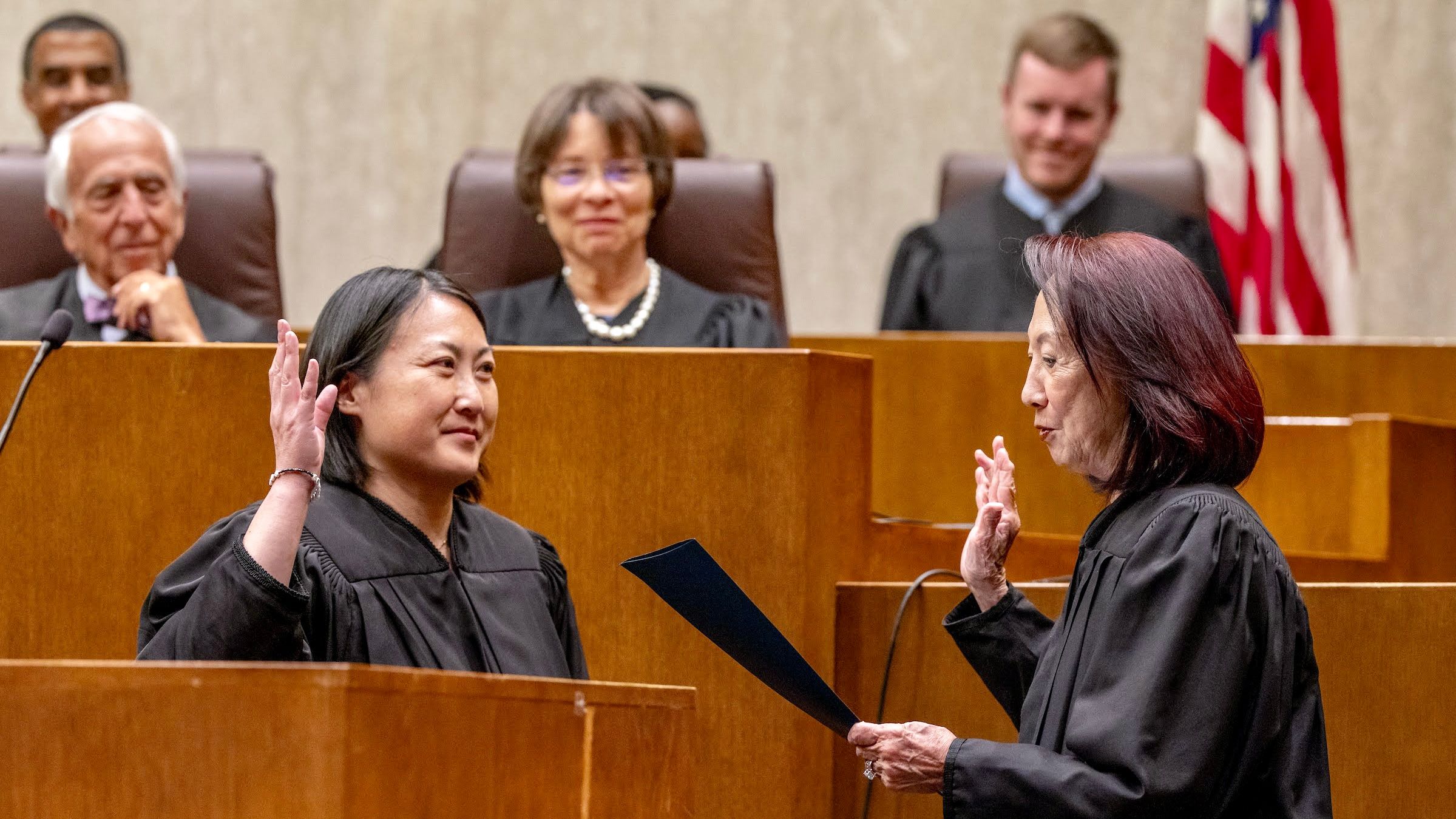
Lin was a civil litigator for 10 years prior to joining the U.S. Department of Justice. She was in private practice as a partner at Morrison and Foerster in San Francisco where she practiced complex commercial litigation principally involving class actions, intellectual property, and maintained an active pro bono caseload.
In 2012, Lin was named as one of the Top 100 Women Lawyers in California by Daily Journal, a California legal newspaper. In 2017, she was named by the National Asian Pacific American Bar Association as one of the Best Lawyers Under 40.
Lin began her legal career as a law clerk for Judge Sandra Lynch on the United States Court of Appeals for the First Circuit after she graduated from Harvard College and Harvard Law School.
Lin was born in Oakland as a daughter and the only child of her immigrant parents from Taiwan. Her parents came to the U.S. as graduate students. Her mother was a microbiologist, and her father was a chemical engineer. They moved to the San Francisco Bay Area from Pennsylvania after Lin's father was hired by Bechtel in San Francisco. They settled in Danville over the East Bay.
It was how Lin was born at the Kaiser Hospital in Oakland. When Lin was 17 months old, she had suffered meningitis that might have caused Lin to lose most of her hearing. She has a hearing disability being deaf in her right ear and partially deaf in her left.
When asked about her hearing disability, Lin thanked for the advanced technology in the field. "When I was growing up, I felt very self-conscious about wearing hearing aids. Noisy situations were sometimes hard for me, though I could hear well in the classroom and with small groups of friends," said Lin.
"Now that I’m an adult, I’m much more comfortable with my hearing disability. It helps that the technology is so good now that I rarely have issues, especially in the quiet courtroom environment," said Lin. "Occasionally, I might have trouble hearing someone in the back or a juror who is speaking very quietly, but I try to be very up front about why I can’t hear."
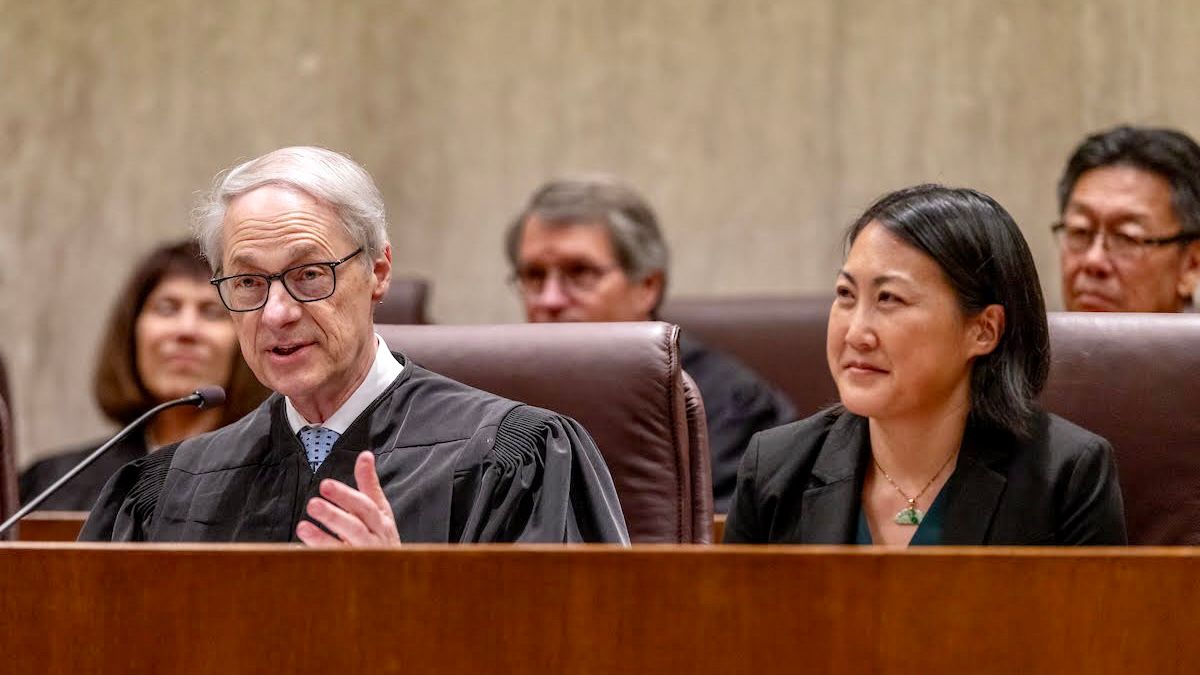
"Also, I realize now that my hearing loss has helped make me who I am. Because of my disability, I listen very closely, and I am always open to the possibility that there is new information or something I missed," Lin added. "That frame of mind has been very helpful to me as an attorney and now as a judge."
Although Lin is the only child of her parents, her parents were both from large families with 8 and 4 siblings at her mother's and father's sides respectively. Lin has been the only lawyer in her entire extended family.
Lin began developing interests in pursuing a legal career when she was in high school. "I was always interested in the news and politics when I was a child," Lin recalled while some news stories inspired her to go into the legal field.
In 1996, Lin heard from the news when she was in high school that Justice Ming Chin was appointed by former Governor Pete Wilson serving as the first Chinese American Justice on the California Supreme Court. That news had meant more to her.
"At that age, I questioned whether it was realistic to aspire to a career in the law. My parents were worried that I might face discrimination in the law, and would not be judged on 'objective' criteria, the way scientists are," said Lin.
"Seeing Justice Chin’s appointment in the newspaper was meaningful to me because it felt like proof that someone with my background could succeed at the highest level of the law. I had no ambitions to be a judge at that time, but it made the possibility of being an attorney feel realistic."
In high school, Lin had opportunities to debate that helped her to develop her interest in public speaking and thinking deeply about complicated issues. "It was a natural progression when I got to college, and after a brief detour into computer science, I fell in love with my philosophy courses and decided I wanted to pursue a legal career," said Lin.
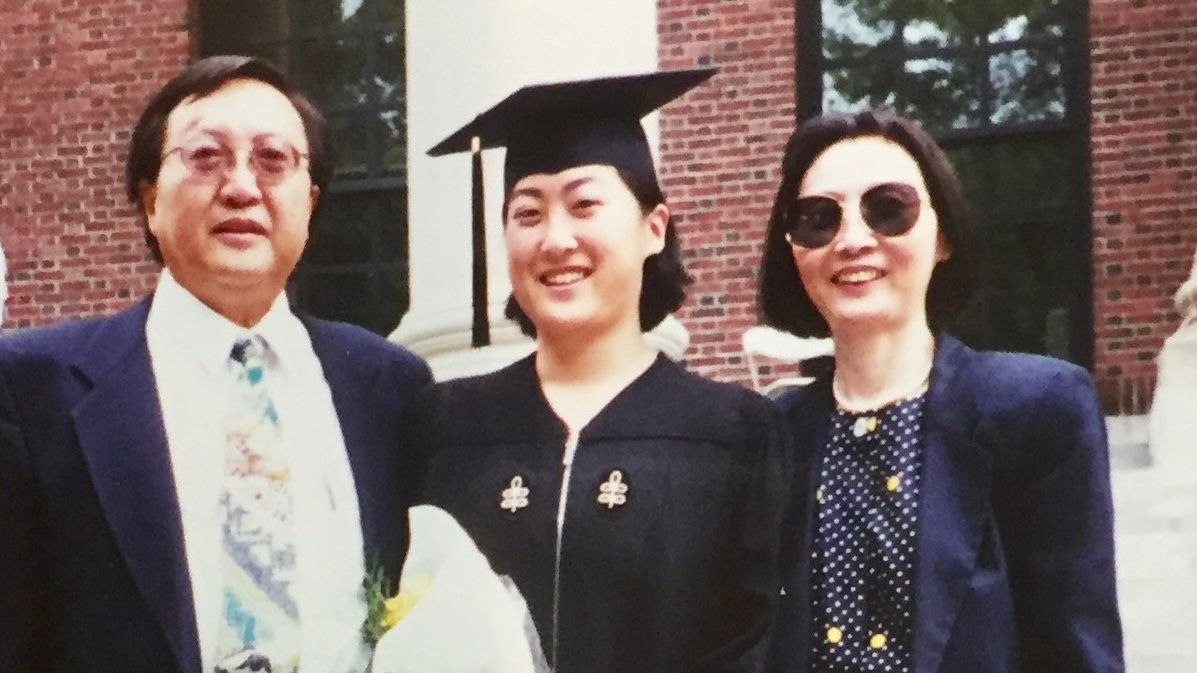
After her college education at Harvard University, Lin was admitted into Harvard Law School. She returned to the San Francisco Bay Area in private practice in 2004 after law school and joined the large law firm, Morrison and Foerster, as a partner and worked on civil cases from 2004 to 2014..
Lin always wanted a career in public service and decided to quit in private practice. She joined the U.S. Attorney's Office as a federal prosecutor for 4 years. Then she submitted her application to be a judge for the San Francisco Superior Court and was appointed by Governor Jerry Brown in 2018.
When Biden was elected as President in 2020, Lin submitted her application to see if she could return to federal court in San Francisco where she called home and spent 14 years presenting arguments in court as a civil litigator and prosecutor.
"I was fortunate enough to be nominated and confirmed to the federal bench," said Lin, who had never expected herself to be the first Chinese American woman judge serving on the same court.
“It is with great pleasure that the Judges of the Northern District welcome Judge Lin to our ranks. She is well known to many of her new colleagues, having served with distinction before the Court as a federal prosecutor and in private practice," wrote Chief District Judge Richard Seeborg, Northern District of California, when the Senate confirmed Lin's nomination in 2023. "Judge Lin brings with her the full gamut of professional experience in both federal criminal and civil practice along with a distinguished judicial record, and the Northern District is very lucky to have her join our very active Court.”
"When I graduated from law school, my plan was to become a law school professor. I thought I would spend a couple years in private practice and then go back to academia, but I discovered that I love working on cases and didn’t want to give that up," Lin said.
As of now, Lin has been serving as a judge on both state and federal courts for 7 years, she loves being a judge the most. "Judges have the privilege of being able to help people directly by deciding their cases in a fair, thoughtful way, and to contribute to the development of the case law. Every day, my job is just to do the right thing under the law. You can’t ask for a better job than that,” said Lin.
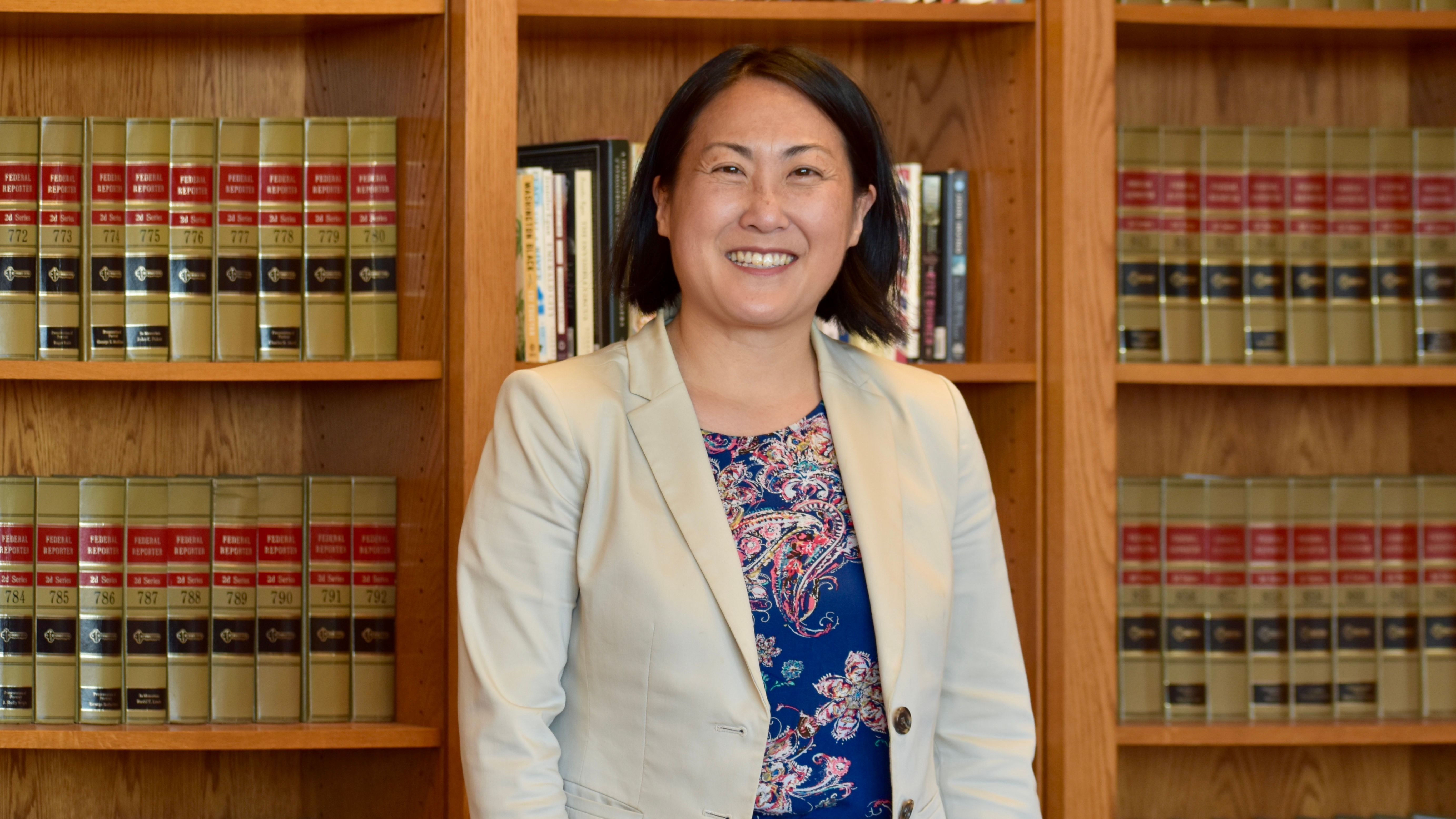
In the meantime as a federal judge, Lin continues her commitment to teaching at the University of California School of Law as an adjunctive professor. "I do teach a criminal procedure class in the evenings, though, so I still get to be an occasional professor," said Lin.
A same-sex marriage case that Lin argued in court in the early days of her private practice was among all the civil and criminal cases she handled impressed her. The lawsuit challenged a federal law that denied recognition to the same-sex marriage. "Our client was a federal court employee who had been with her wife for 19 years. She became the first federal employee in the country to receive health benefits for her same-sex spouse," Lin said.
On the criminal side, Lin represented the government in her last trial as a federal prosecutor to convict a defendant who was a physician’s assistant and one of the top opioid prescribers in California. The defendant had prescribed over a million pills, many of which had no legitimate medical purpose and went to people who struggled with drug addiction and/or were selling the pills to other addicts, multiple of whom had overdosed and died.
"Since becoming a judge, I have handled lots of cases large and small, but they all have special meaning for me," Lin added. "To the people involved in a case, their case is the most important one in the world to them, and I try to respect that across all different types of cases that I have."
- Alleged scams appear in Chinese-language newspaper job advertisements seeking workers caring for the elderly, San Francisco Police Department urges victims to file reports
- San Francisco becomes a newest local partner of Dolly Parton’s Imagination Library in the Bay Area to offer free books to all young children
- California state employees alarmed by demand to prove their citizenship or work eligibility
- “No Red Lanes on Ocean Avenue”, Chinese American merchants, residents and community members in San Francisco say
- Open Forum: Strong protest against unilateral street closure decision for SF Chinatown night market without merchant consultation
- Interim Police Chief Paul Yep honored for leadership with historic low crime rate and record high police hirings
- An increase in flu activity seen in SF Bay Area, experts recommend everyone aged 6 months and older to receive the flu vaccine
- SB 1234 is fully in effect in 2026 and requires employers to offer retirement plans to all employees, full-time, part-time & short-term






